Farm-fresh eggs have so many benefits over their store-bought counterparts! If you’ve ever read the labels on an egg box, chances are you’ve pondered the age-old question: farm fresh or store-bought? Let’s talk about all the benefits of farm-fresh eggs.
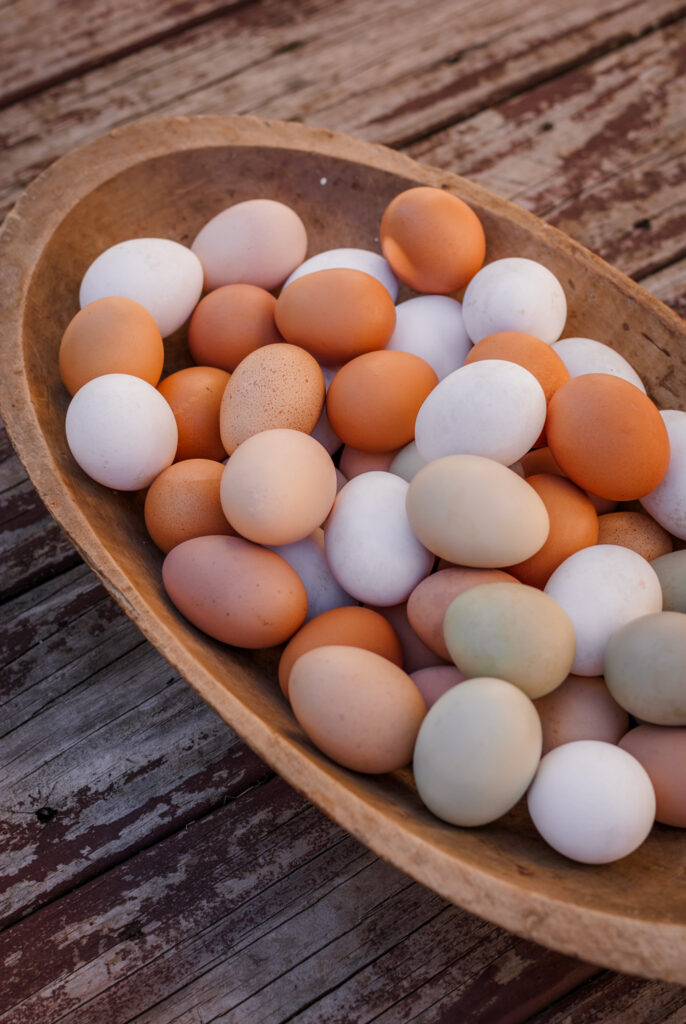
Farm Fresh eggs are straight from the coop to your kitchen. No middleman, no fuss. When you eat a farm-fresh egg, you’re getting a whole lot more than just breakfast. You’re getting a nutrient-dense super food.
Nutritional Value
One big benefit of farm-fresh eggs is their higher levels of Omega-3 fatty acids. Omega-3s are like the superheroes of healthy fats. They’re great for your heart, your brain, and even your mood. Farm fresh eggs are loaded with them. In fact, farm-fresh eggs have about 20x more Omega-3s. So, if you’re looking to boost your Omega-3 intake, these eggs are perfect for you!
They also contain less saturated fat and less cholesterol than store-bought eggs. Eggs have gotten a bad reputation over the years for being high in cholesterol. However, the contents of the egg have more to do with how the chicken is raised and what its diet consists of. We’ll talk more about the chicken’s diet a little later on.
Farm fresh eggs also pack a punch when it comes to Vitamin A, E, and D, as well as beta carotene, selenium, zinc, phosphorus, calcium, and folate. They contain about 6 grams of protein per egg. That’s a lot of protein in a little shell.
Quality Of Life
Now, let’s talk about the chickens themselves. Even if chickens aren’t able to free range, farm raised flocks tend to have a lot more space and access to the outdoor. The access to fresh air and sunlight helps the chicken produce a better quality egg.
Not only do they produce a better product but they also live a more natural life. A better quality of life for the animals is just as important.
Compare that to the cramped cages of factory farms. Chickens are packed into battery cages in a dark shed. They end up with injuries, feather loss, weak bones and sometimes death. Most of these chickens never see the light of day. I enjoy getting fresh eggs, but I equally enjoy watching my chickens enjoying life and doing chicken things. The thought of them never being able to scratch in sun is very sad.
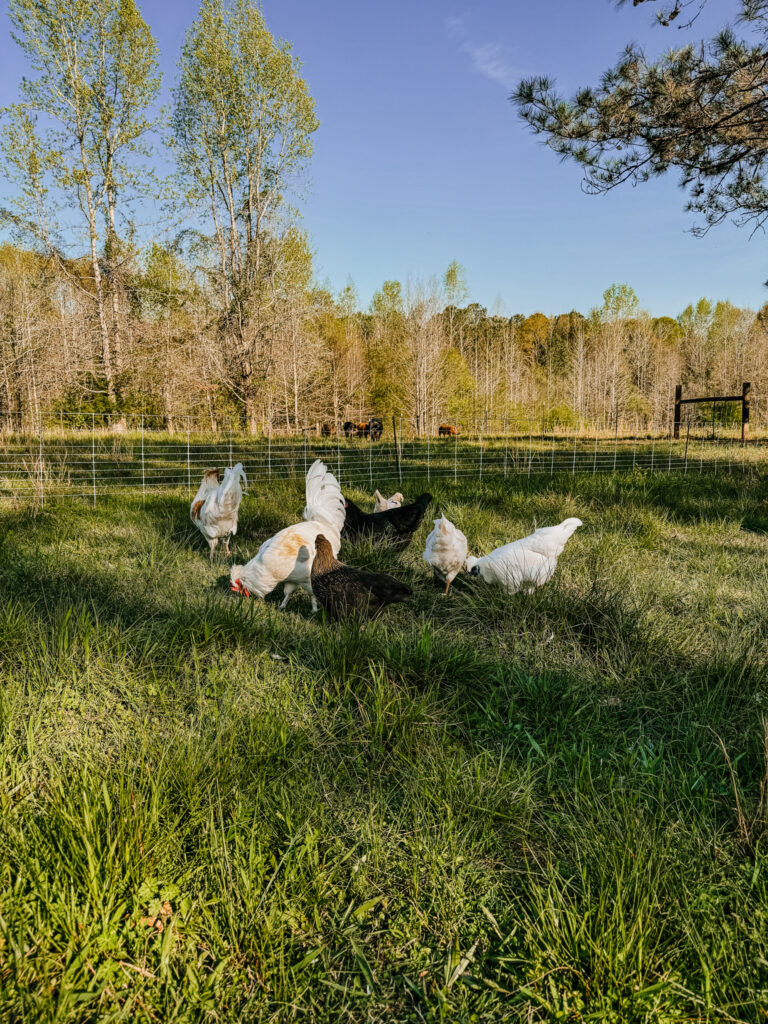
Shelf life
Eggs you’ll find on grocery store shelves are 30 to 40 days old. As they age, the quality of the egg decreases as well as the nutritional value. Farm-fresh eggs are usually sold at less than a week old. When you buy eggs directly from a farmer you’re getting a fresh, more flavorful egg.
And speaking of taste, let’s not forget about the flavor factor. Farm fresh eggs have a rich, robust taste. The yolks are a rich amber color and they have a flavor that doesn’t even come close to anything on the shelves. Once you try a fresh egg, you’ll never feel the same about a storebought one.

Egg Labels
The labels on eggs can be very confusing especially if you don’t know their meaning. Some distributors will try to fool you into buying what they portray as a “better” product. Here are a few of the labels you might see on eggs at the grocery store and the meaning behind them.
Free-Range Eggs:
Free-range eggs come from chickens that are allowed some level of outdoor access. This means they have the opportunity to roam around outside the confines of a barn or coop. However, the specific requirements for free-range status can vary depending on regulatory standards and farm practices. In some cases, the outdoor area provided may be limited, and the amount of time chickens spend outdoors can vary. Nonetheless, free-range systems generally aim to provide chickens with a more natural environment and access to fresh air, sunlight, and foraging opportunities.
Pasture-Raised Eggs:
Pasture-raised eggs typically come from chickens that spend a significant portion of their time outdoors, grazing on pasture or foraging for insects and plants. These chickens have ample space to roam freely and have more natural behaviors. Pasture-raised systems consider the well-being of the chickens and often involve rotational grazing, where the birds are moved to different areas of pasture regularly. As a result, pasture-raised eggs are a higher quality, with richer flavor and higher nutritional value due to the naturaldiet and exposure to sunlight.
Cage-Free Eggs:
Cage-free eggs come from chickens that are not confined to small cages. Instead, they are typically housed in large barns or aviaries where they have more freedom to move around. While cage-free systems offer chickens more space and opportunities for movement compared to battery cage systems, they may still be crowded, and outdoor access is not guaranteed. Cage-free systems focus on providing a more humane living environment for the chickens while still maintaining high levels of egg production.
While all three types of egg production systems are better alternatives to conventional battery cages, there are differences in terms of outdoor access, space, and environmental enrichment. Pasture-raised eggs typically provide the highest level of outdoor access and natural living conditions for the chickens, followed by free-range eggs, while cage-free systems use indoor space and freedom of movement in barns.
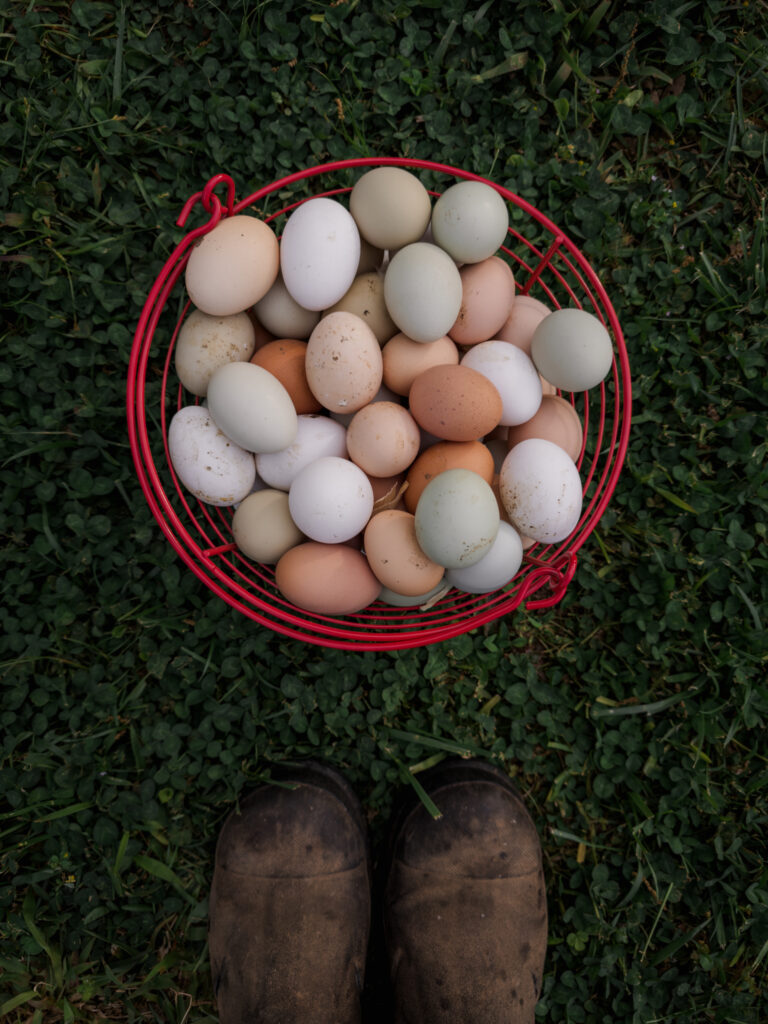
FAQ
What are farm fresh eggs?
These eggs are eggs laid by chickens raised on small farms or backyard setups. These eggs are typically sold directly to consumers or through local markets.
How do farm-fresh eggs differ from store-bought eggs?
Farm-fresh eggs are usually laid by chickens that have access to outdoor spaces, resulting in a diet richer in nutrients like Omega-3 fatty acids and Vitamin D. Store-bought eggs, on the other hand, are typically from chickens raised in commercial facilities.
Are farm-fresh eggs healthier than regular eggs?
Farm fresh eggs may have higher levels of certain nutrients like Omega-3 fatty acids and Vitamin D due to the chickens’ diet and lifestyle. However, both types of eggs provide essential nutrients and can be part of a healthy diet.
Are farm-fresh eggs more expensive than store-bought eggs?
Farm fresh eggs may be more expensive due to their higher quality and production methods. However, many people find the taste and nutritional benefits worth the extra cost.
Are farm-fresh eggs safer to eat compared to store-bought eggs?
Both farm-fresh and store-bought eggs are safe to eat when handled and cooked properly. However, farm fresh eggs may have a lower risk of contamination since they come from smaller-scale operations with fewer handling steps.
Do farm fresh eggs come in different varieties or colors?
Yes, farm-fresh eggs can come in various colors depending on the breed of chicken that lays them. You may find eggs in shades of brown, white, blue, or even green. Check out the chickens that lay blue eggs.
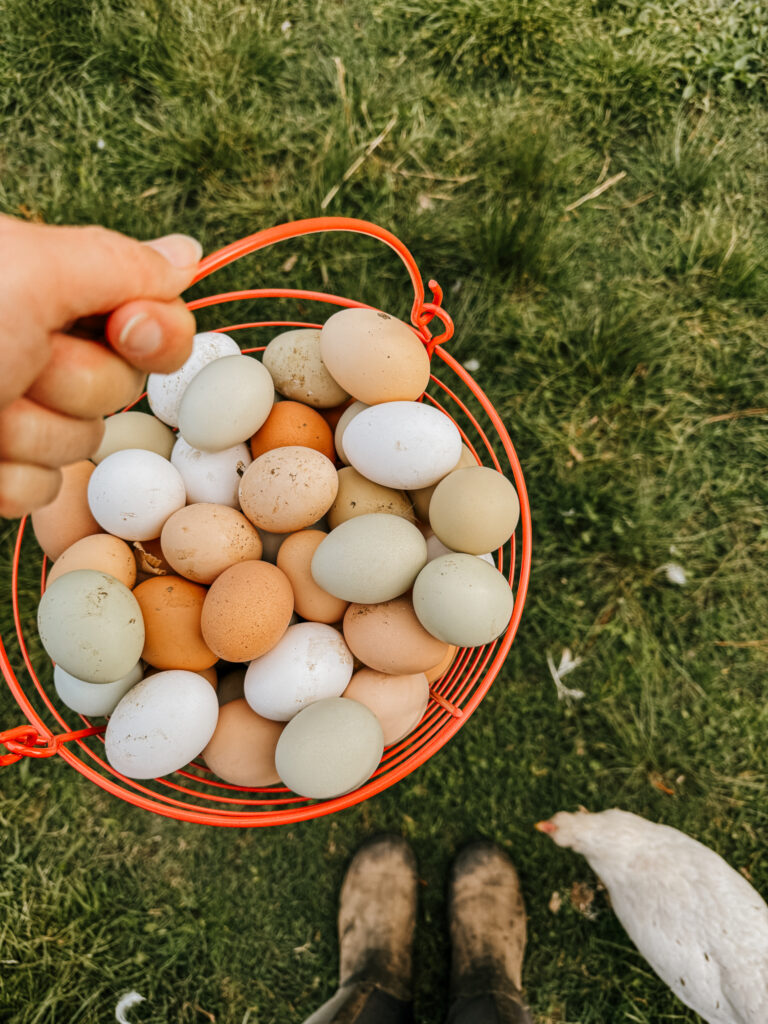
**This post may contain affiliate links which means I make a small commission at no extra cost to you. Read my full disclosure here.*
Free eBook!!
Want to know how to wash and care for your farm-fresh eggs? Download my Free eBook on Farm-Fresh Egg Care!
Chicken Coop Must Haves
Final Thoughts
Farm-Fresh eggs are not only a better quality egg, they’re better for the chickens as well. They make for happier people and happier hens. Knowing the labels and their meanings give you the knowledge you need to make an informed decision on which product is best for you!
If you enjoyed this egg article, please share it! Thanks for visiting my farm.
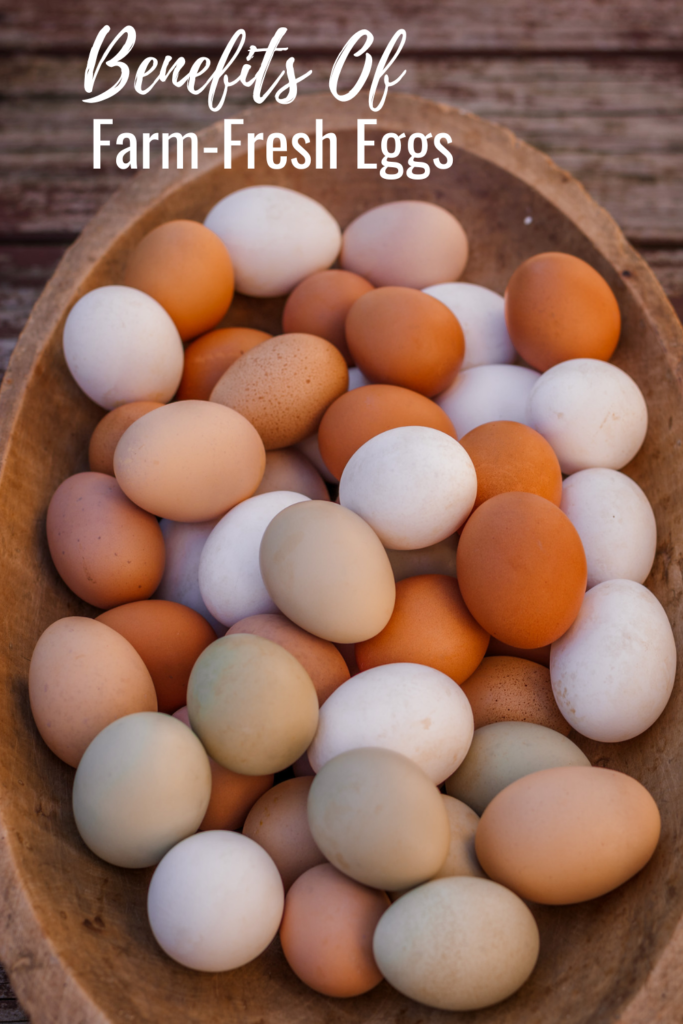
[…] Farm-Fresh Egg Benefits […]